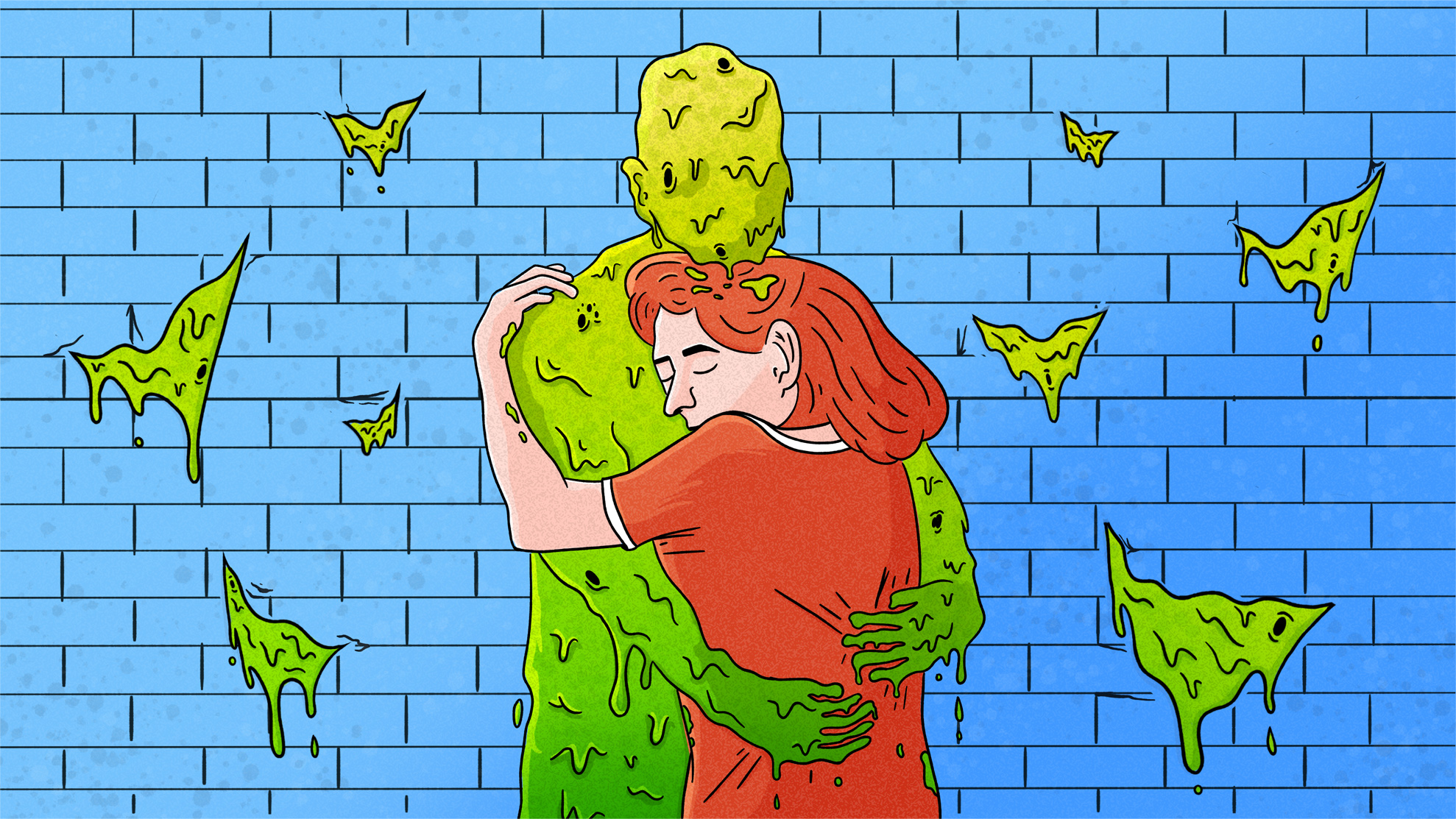
Not Convinced? Here Are 7 Signs You’re in a Toxic Relationship
All relationships hit their rough patches from time to time, but only one type of relationship stays in the rough patch indefinitely, and that’s a toxic one.
Toxic relationships can exist between family members, friends, dating partners, work relationships, and marriages — pretty much every type of relationship you can think of. To people on the outside, the toxicity is usually apparent, but to people on the inside, it can be hard to realize the truth about what’s really happening.
What Is a Toxic Relationship?
When you think of the phrase “toxic relationship,” you may think of a physically or emotionally abusive partner. While this is one example of a toxic relationship, it’s not the only kind. A less obvious sign of toxicity might be when someone in the relationship constantly puts their own needs above everyone else’s.
Ultimately, toxic relationships are those where one party seeks control over the other to achieve selfish goals and use the other party for their own benefit.
If you’re not sure whether your relationship is toxic, here are seven signs to help you make an empowered decision and see for yourself if it’s time to seek professional help or leave the relationship.
Toxic Sign #1: Consistent Lying and Foundational Mistrust
Trust is a foundational pillar in any relationship, and if there’s one thing that ruins trust, it’s lying. Lies don’t have to be huge to be detrimental. Over time, smaller lies, also known as “white lies,” erode relational trust from the inside out.
People often lie out of fear (they feel that the truth will put them in a negative light) or disrespect (they don’t care enough about you to tell the truth). Either way, choosing to lie is a selfish decision, and if you find yourself or the other person lying consistently in the relationship, it’s a red flag.
How to Approach It: If lying becomes a consistent problem in your relationship, it’s best to bring it to light as soon as possible. Be honest with the other person about how their lying hurts you. Ask the other person if they’re willing to commit to honesty in your relationship and promise to do the same.
When to Leave: If the other person can’t or won’t commit to honesty, it might be time to end the relationship. Keep in mind that they might apologize and commit to honesty but continue lying all the same. If this is the case, it may be best to bring in an intermediary (such as a counselor or therapist) or leave the relationship.
Toxic Sign #2: Gaslighting in Relationships
Have you ever had an honest conversation with a person about how they’re hurting you, and then you end up apologizing? Or maybe, you’re upset about something your partner has done, but they tell you it’s all in your head? If so, you may have been a victim of gaslighting.
Gaslighting is a form of psychological abuse that manipulates the victim into thinking that they are confused, always wrong, or even insane. It’s a way for the abuser to maintain complete authority over the relationship. This is why it can be so hard to leave: you’re constantly second-guessing yourself, so how could you make a confident decision to get out of the relationship?
How to Approach It: Manipulation is something that all human beings are capable of. Gaslighting can develop in small ways at first, but if left untreated, it can easily develop into a cycle of abuse. If you notice the other person saying things such as, “Are you sure you think that?” or “I think you’re remembering that wrong” repeatedly, it’s time to have a conversation about how you feel manipulated and unable to trust yourself. However, keep in mind that this conversation may end with gaslighting (and with you apologizing). If that happens, it’s time to ask a therapist or someone you trust for help.
When to Leave: Sometimes, people aren’t willing to change their ways or give up power over the relationship. If that’s the case, then it may be time for you to leave completely. Don’t be afraid to ask a trusted friend or a professional for help, especially if you feel unable to make the decision on your own.
Toxic Sign #3: Jealousy and Possessiveness
Is your partner always checking in on you or accusing you of cheating? Does your friend seem jealous when you hang out with other friends? Are your parents tracking your every move, even though you’re a responsible adult? These are examples of toxic jealousy and possessiveness in relationships. This type of behavior can quickly become overwhelming and create an unsafe environment.
How to Approach It: In every relationship, it’s important to remember that YOU are your own person. Your friend, parent, or romantic partner does not own you and should not have control over your every move and decision. If you feel unable to make decisions for yourself or have time alone, then it’s time to have a conversation with the other person. If possible, have a trusted third party mediate if the other person is unreceptive.
When to Leave: If you ever feel unsafe or the other person refuses to acknowledge the problem, it’s time to seek help from a professional and leave the relationship. In the worst of circumstances, you may need to place a restraining order on the other party if they continue to show aggressive and possessive behavior.
Join In 200 Million+ On The Journey to Greatness
Toxic Sign #4: Absence of Communication or Empathy
In a healthy relationship, communication is key. When something’s wrong, you bring it to the attention of the other party in hopes that it can be resolved. When everything is going great, you express your thankfulness and gratitude. In a toxic relationship, however, communication and empathy are almost non-existent.
You may “talk” with the other person, but are you really talking about anything important? Do you leave conversations feeling heard and valued? When you’re going through a tough time, do you feel like your partner or friend is there for you? Or do you feel completely on your own?
How to Approach It: Tell your friend, partner, or family member how you feel and that you desire to communicate authentically with them. It may also help to express the ways you receive and express love — whether in the form of affirmations, gifts, or acts of service — and ask the other person how they receive/give love. Finding a relationship counselor is a great step to take as well since they are professionally trained to intermediate in these situations.
When to Leave: If you’ve taken measures to rectify the situation and nothing has changed, it may be time to leave the relationship. You deserve to be in a relationship where you can express your needs and be cared for (and do the same for the other person).
Toxic Sign #5: Financial Behaviors That Exclude You
This type of toxic behavior usually happens within long-term romantic partnerships or marriages. If your partner is constantly spending money on things you don’t agree with, or if they’re secretive about their finances, that’s a sign the relationship is toxic.
How to Approach It: Healthy financial behaviors include discussing expenses and budgeting together. Talk to your partner about how you would like to be included in discussing finances since you are invested in the relationship and it’s important to you. Maybe recommend going on “money dates” at least once per month to discuss finances in detail.
When to Leave: If your partner refuses to discuss finances with you or doesn’t permit you to spend money on your own, it’s time to either bring in a third party to conflict-resolve or leave the relationship. This is a manipulative, controlling behavior that will most likely express itself in other toxic ways, such as possessiveness, gaslighting, and dishonesty.
Toxic Sign #6: No Self-Care Allowed
In the best of relationships, you have the space and time to pursue the hobbies you love, the career that lights you up, and free time for some good R&R. However, in toxic relationships, people tend to let go of self-care habits, neglect their personal health, and stop doing what they love.
How to Approach It: You have to fill up your own cup before you fill up others’. Talk to the other person about how self-care is important to you and what you need to recharge. Ask them what their self-care habits are, and commit to serving one another.
When to Leave: If you consistently don’t take care of yourself because you feel like the other person is more important, it may be time to speak with a mental health professional or relational therapist. If the other person makes you feel lesser than or doesn’t allow time for self-care, it may be time to leave the relationship since it’s completely one-sided.
Toxic Sign #7: You Want to Save Them
If I just showed them more love, maybe they would love me back.
Maybe if I buy them this, they’ll start caring for my needs too.
If I can forgive them for this, then surely they won’t do this again.
The “savior complex” toxic behavior can begin as a response to other toxic behaviors in the relationship. For example, if your boyfriend is mentally abusive, you may think that with enough love, support, and patience, you can help him change his ways. While loving on someone who’s struggling isn’t a bad thing, it can become toxic if you make yourself responsible for their transformation. Ultimately, it is out of your power whether someone will change or not, and it’s not worth staying in a toxic situation holding onto the hope that you’ll “save” them.
How to Approach It: Don’t put the pressure of “savior” on yourself. Instead, seek help from a professional if your partner, friend, or family member needs help. Chances are, you’re too emotionally invested in the situation to provide guidance from an objective standpoint.
When to Leave: Often, the savior complex will keep someone in a toxic relationship even when it’s unsafe for them. People will endure emotional, mental, and even physical abuse if they truly believe the person can be saved through their behavior. If you feel unable to leave, this is a good sign that you should leave and ask for professional help if necessary.
Not Sure What to Do? Need Help Leaving a Toxic Relationship?
Many healthy relationships have experienced “toxic periods” from time to time, so if you identify with a sign on this list, don’t jump to conclusions that your relationship is “past help.” If both parties can commit to inner work and healing, then it’s very likely the relationship will be saved and grow stronger than ever.Therapy can be an amazing tool to support you in evaluating where your relationship stands – and identifying if there are patterns at play that don’t feel healthy to you. Lori Gottlieb, a renowned psychotherapist who writes the weekly “Dear Therapist” column in the Atlantic and the author of Maybe You Should Talk to Someone says:
Toxic relationships can sometimes feel like you’re caught in a loop, and therapy is a valuable tool for understanding why and how we can get caught in these types of dynamics.
However, if you find yourself in a position where you feel unsafe, and the other person is unreceptive to feedback, it’s time to ask for help and let go.
You deserve to be loved! Cheers to relationships that light you up, encourage you to grow, and let you be YOU!
Greatness Authors
Greatness Authors is a collection of writers, thinkers, curiosity experts, and students of the world who are committed to bringing you the most up-to-date, impactful, and inspiring information surrounding Greatness topics.
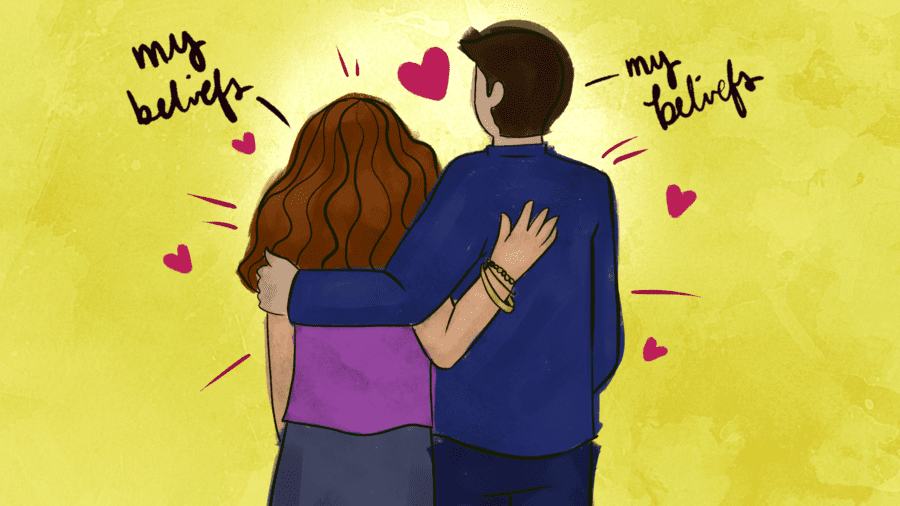
How to Have a Healthy Romantic Relationship Even if You Share Different Beliefs
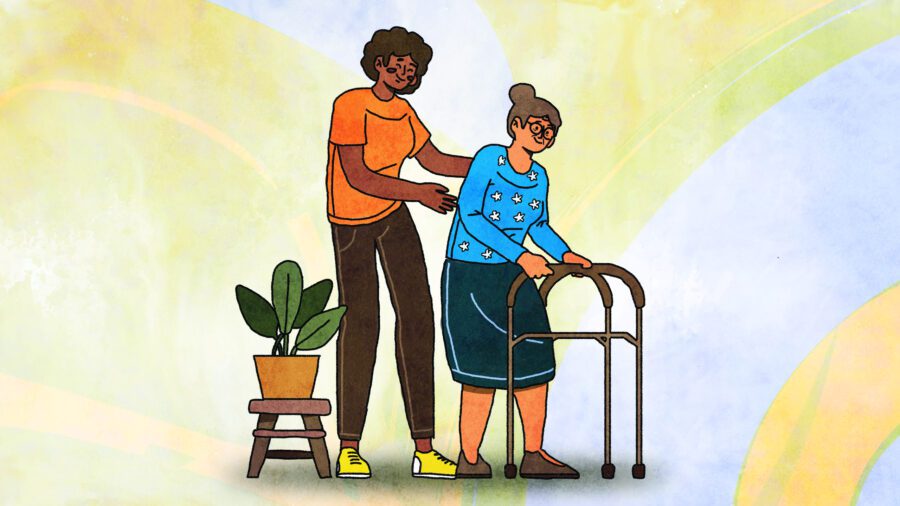
13 Tips to Help a Parent Transition into Assisted Living with Care & Respect
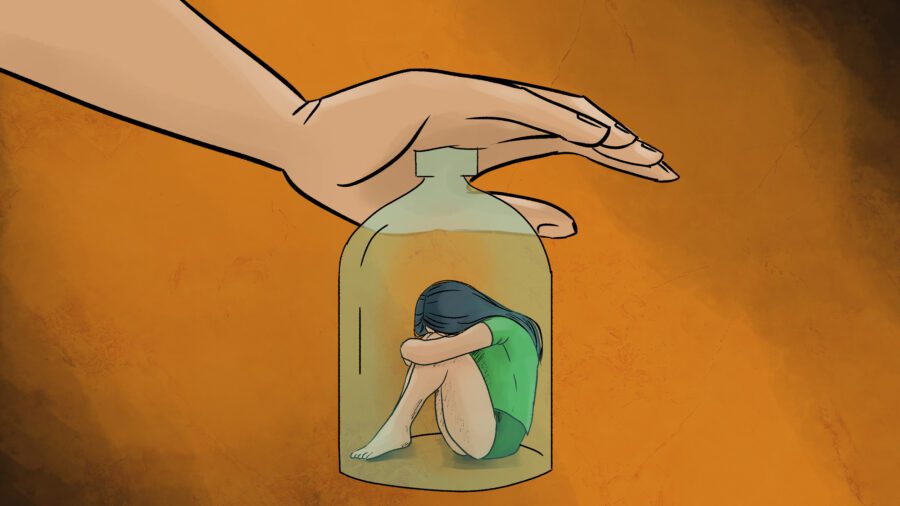
Take Your Power Back: 9 Subtle Signs Your Partner Is Gaslighting You
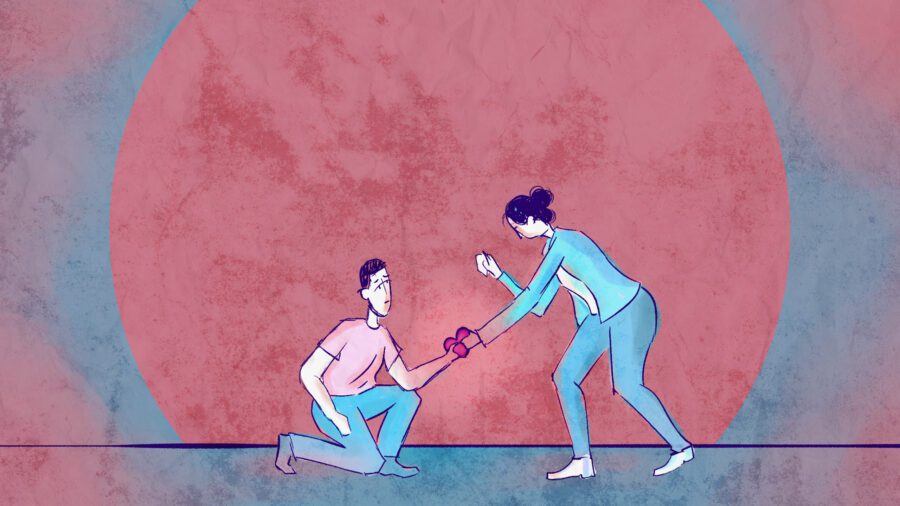
Apologizing 101: How to Apologize from the Heart & Mend Your Mistakes Without People Pleasing
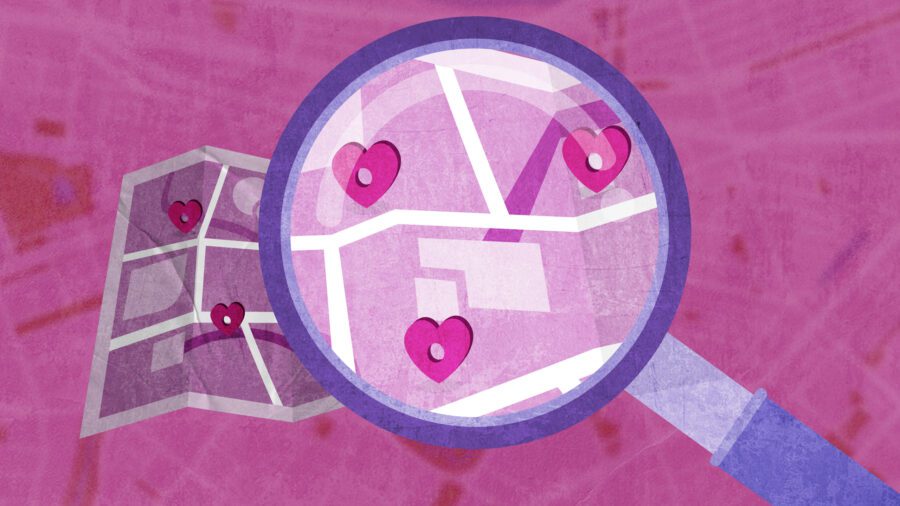
The Ultimate Guide to Finding “the One,” According to Relationship Expert Stephan Speaks












